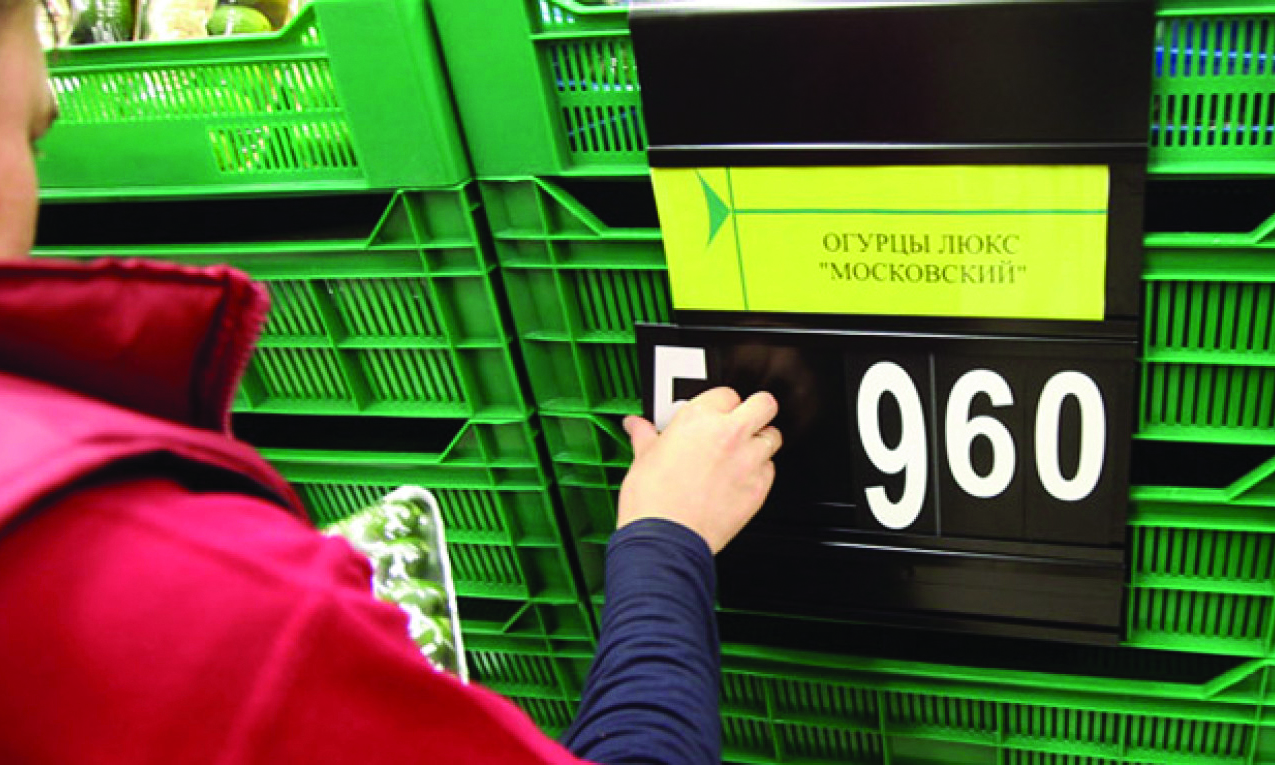MOSCOW: Consumer price inflation in Russia, which has been accelerating for months, hit a six-year high in February, Russia's national statistics agency said Wednesday. The 9.15 percent annual inflation rate recorded last month by Rosstat was also the first time it has exceeded nine percent since January 2016.
Food prices were up nearly 11.5 percent on an annual basis. The inflation rate is more than double the four percent target of the Russian central bank and the data does not yet include the effect of Western sanctions imposed on Russia over Ukraine. High inflation has already hit the purchasing power of Russians, who have little savings, and proved a headache for the authorities in recent months.
Western sanctions are likely to drive up prices for many goods even higher, especially as the Russian ruble has lost around 40 percent of its value since the start of the year, making any goods that Russia manages to import even more expensive for consumers. Capital Economics noted the weekly consumer price information released by Rosstat for the week to March 4, showed that the collapse of the ruble led to a sharp 2.2 percent jump in prices week-on-week.
It said this rate was more than double the rate seen during the collapses of the ruble during the previous crises in 2008-2009 and in 2014-2015. "The collapse in the ruble... and imposition of sanctions on Russia will push up inflation significantly in the coming months," said Capital Economics.
The Russian central bank more than doubled its main policy rate to 20 percent last week as it sought to stop the hemorrhaging of the ruble, but to no avail. With many Russians still remembering the devastating hyperinflation of the 1990s, supermarkets have announced measures to limit the rise in prices on basic foodstuffs.
Meanwhile, Russia announced yesterday an export ban on more than 200 types of foreign-made products and equipment until the end of the year, part of Moscow's response to sanctions imposed over the Ukraine conflict. The measure concerns goods and equipment that were previously imported into Russia from abroad. "The list includes technological, communication and medical equipment, vehicles, agricultural machinery and electrical equipment-more than 200 types of goods in total," said an order signed by Russian Prime Minister Mikhail Mishustin.
"This measure is necessary to provide stability on the Russian market," the order said. The measure will affect all foreign countries, but exceptions can be made for members of the Moscow-led Eurasian Economic Union and Georgia's breakaway regions of South Ossetia and Abkhazia. Separately, the government also banned the export of "some types of timber" to countries that "committed unfriendly actions" towards Russia.
The list includes 48 countries, including EU states and the United States. Russia is home to one-fifth of the world's forest and further exploiting this resource could help the country cut down its economic reliance on oil and gas. President Vladimir Putin's "special military operation" in Ukraine that began on February 24 has triggered unprecedented Western sanctions and sparked an exodus of international corporations from Russia. - AFP











